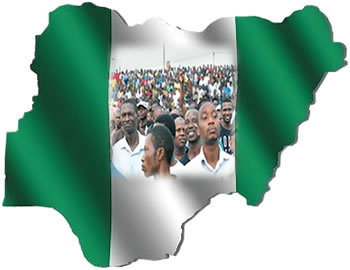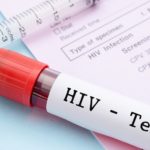According to Trading Economics, a worldwide reference site for economic data and financial markets and the World Bank Bi-annual Economic Update, the rate of unemployment in Nigeria increased steadily throughout 2017, whilst unemployment statistics for Quarter 1 in 2018 was announced to be hovering at 14.2 per cent. To put this into perspective, Quarter 1 unemployment rates in the U.K reported at 4.1%, the U.S.A at 3.9% and China 3.95%; in comparison, Nigeria’s unemployment rate is staggeringly high. The administration is attempting to challenge unemployment levels, with its key mechanism being the unsustainable N-Power scheme, set up by the government in 2016. An unprecedented initiative to undertake mass recruitment of young graduates, reports this month suggest immense challenges with the first recruits, whose two year tenure ends this year, not being kept on so as to make way for the second batch of recruits, thus deploying the young people back into the Labour market.
Many pundits, such as Bismarck Rewane, who last month reiterated his warnings on the geometric rise of unemployment and underemployment in the case of the N-Power scheme, predicted that unemployment rates could rise to 21.5 per cent by Quarter 4 this year. His warnings so far have been rebuked by Lai Mohammed, Minister of Information and culture, as being incorrect. Further rebuked statements on incorrectness was also proffered at Bill Gates during his visit to Nigeria, from Kaduna State governor, Nasir El-Rufai, when Gates offered advice that the Nigerian administration’s economic blueprint does not meet the needs of Nigerians. PZ Cussons Chairperson, Caroline Silver, commented recently that, “Macro-conditions in Nigeria have resulted in a sharp decline in Africa profits for the year and hence, a disappointing result for the group as a whole” And she has plenty of corroboration from other organisations operating in Nigeria. In July, consumer goods giant, Procter and Gamble (P&G), announced that it was closing a $300 million Nigerian plant that it had built for much the same reasons as Caroline Silver has given.
According to P&G, the economic policies of the current Nigerian administration made it impossible for it to continue to operate their plant in Agbara in a profitable manner. According to the Manufacturers Association of Nigeria, 227 manufacturing firms have closed down in Nigeria during Mr. Buhari’s first year alone. Earlier this year, British hospitality group, InterContinental Hotels Group Plc, the world’s third largest hotel chain, announced that it was withdrawing from Nigeria after five years of operating in Lagos. In 2017, Abu Dhabi-based telecommunications giant Etisalat, left Nigeria due to the Central Bank’s tightening of capital controls leading to a shortage of dollars. Investors continue to flee Nigeria and capital investment levels remain low, with little possibility of market growth with the elections due to hold in 2019. Lai Mohammed, earlier this year, claimed that it is not the “responsibility of the government to create jobs alone, but that of well meaning individuals, Governmental Organisations and corporate bodies”, not at all referring to the Central Bank’s direction of restricting dollars in the market.
With a little over six months before Nigeria goes to the polls next year, if the mood of the country is anything to go by, President Buhari would do well to change tact to achieve his party’s manifesto promises. Chatham House recently published a report on the countdown to next years elections, referring to the countdown as being Buhari’s last ‘hurrah’, citing support for the President waning considerably based on opinion polls. With less than engaged and interest lacking from international partners, namely the UK, EU and the USA, coupled with a multitude of defections of Senior Ministers from Buhari’s administration, rising unemployment, rising crime and international creditors unwilling to lend to an administration whose sole mantra is to fight corruption but seemingly not win, international experts are already analysing that a key factor in determining whether the President and his party will win a second term will depend on the President’s performance in his last six months plus engagement from said international partners in endorsing the administration in next years election. His next steps remain to be seen. In the meantime I hear he is off on holiday…
- Oviri is Managing Director of SASARE Group UK and Conservative Party councillor.






